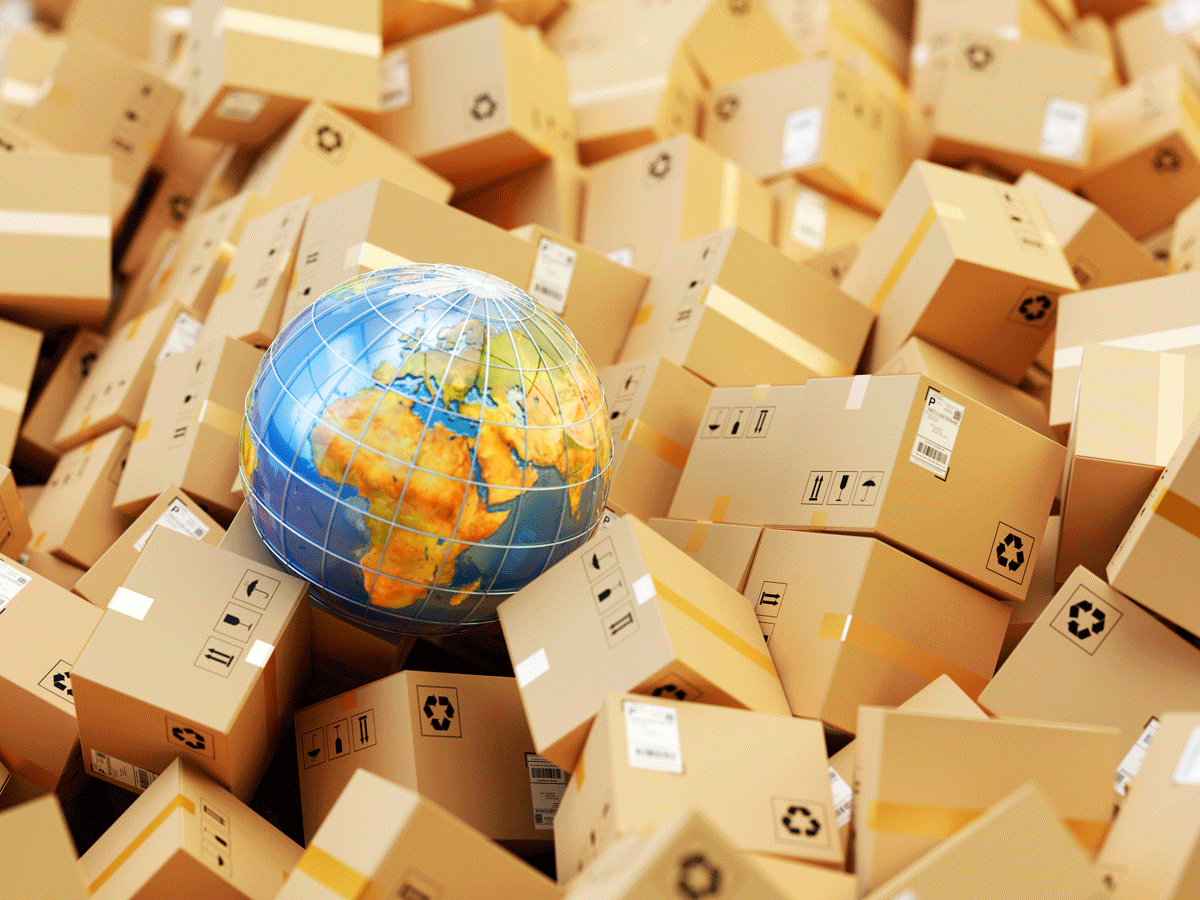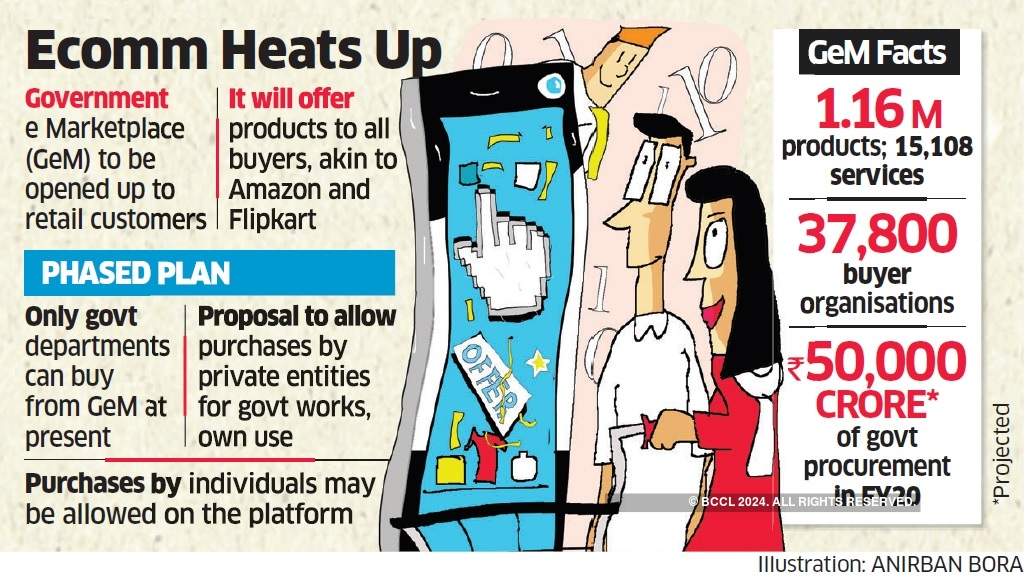 This is a gem of an ecommerce idea — or so GoI wants it to be.
This is a gem of an ecommerce idea — or so GoI wants it to be.A commerce ministry cabinet note proposes that Government e-Marketplace (GeM), the sarkari online procurement platform, be retooled to also offer a business-to-consumer (B2C) retail option. If the plan goes through, consumers and businesses will be able to buy products listed on GeM by private companies, exactly as it is in private online marketplaces.
GoI’s ambitions are high: “We will set a benchmark for online marketplaces. We plan to make it an ideal platform,” an official familiar with the development said. He and other officials spoke off record.
Currently, GeM allows only government departments and public sector units to buy from the portal. It saw transactions worth around Rs 17,000 crore, according to FY19 figures. The market place offers more than a million products and around 15,000 services, hosts over 260,000 sellers, and its clients are 37,000 government organisations, both Central and state.
The transformation to a B2C online marketplace will be in three stages, another official said.
Final Road Map Under Discussion
“The final road map is under discussion...but the idea is to open up procurement to all in a phased manner,” he said. In the first phase, private entities with government work contracts — say, installing CCTV in government schools — will be able to buy from GeM. Currently, government departments have to do the purchase themselves and then the work is executed by the contractor.
The next change will be allowing private entities to buy products in bulk for their own use. For example, a private company with a plan to install new air-conditioners across its offices may be allowed to buy them from a vendor listed on GeM.

The final stage will open GeM to individual buyers, who can buy any product listed on the platform.
Officials said the plan is to make GeM host a very wide range of products, including those typically featured in consumer ecommerce purchases, for example, white goods.
The commerce ministry is also evaluating a monetisation model and may collect user charges from merchants for listing on GeM.
GeM was launched on August 9, 2016, replacing the Directorate General of Supplies and Disposal (DGS&D). The aim was to induce greater transparency in government procurement. Big ticket defence and railways purchases are not routed through GeM.
No comments:
Post a Comment